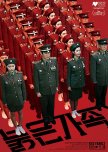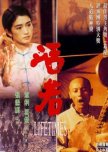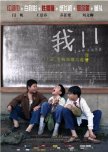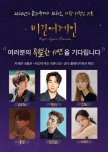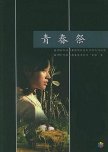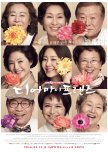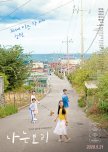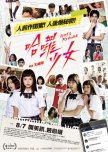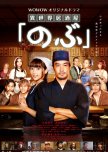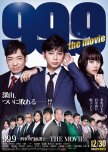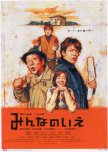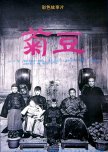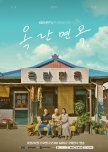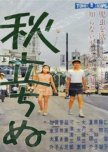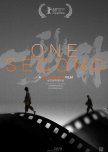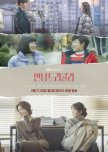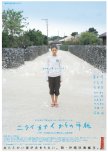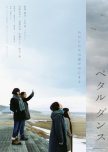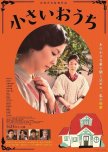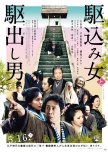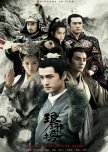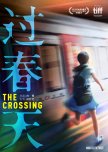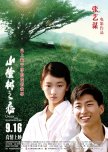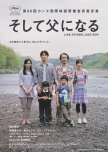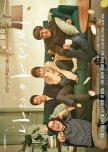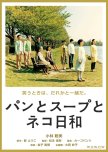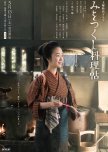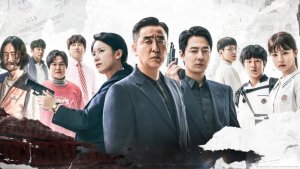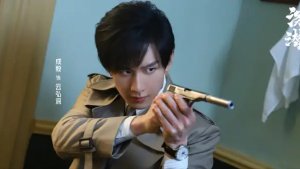Watched in 2021
Continuing with a preference for Chinese dramas this year while I continue to study Mandarin. Taiwan looks like a friendly, laid-back and beautiful place (I had planned to cycle for three weeks there and then the pandemic sabotaged that). I discovered the excellent mainland Chinese-made Light On Series which greatly improved my view of China's capacity to make good dramas. Also kept up with the occasional Korean and Japanese dramas to maintain those languages.
-
101. Red Family
Korean Movie - 2013
Who knows if this has any basis in reality: a set of North Korean assassins (not spies as most reviews state) including a teenage girl, setting up house in a South Korean suburb, reluctantly connecting with their neighbours, envying their freedom, including the freedom to bicker relentlessly. There's some inconsistency in their early bungling and ineptitude, versus later in the movie being able to overpower several bodyguards so they can kill a general, and to capture a set of seasoned North Korean agents. But that's hardly the point; this movie mourns for the anguish of families across a divided Korea, and for the misery of living under the totalitarian government in the North, which destroys family units to maintain its power.
Like most Korean movies made for adults, the denouement is violent. Except for the coda, which appears to be a fantasy sequence drawn from a Korean teenage movie. -
102. To Live
Chinese Movie - 1994
"Things will get better and better". The empty promise of self-serving leaders the world over, while the ordinary people try to survive, depending on bonds of family and friendship. This married couple (fine acting by both leads) are driven closer by the hardships they suffer through their life together, including the disastrous Great Leap Forward and Cultural Revolution, and the personal losses of dearest ones brought on by those poisonous social movements.
-
103. Impasse
Chinese Movie - 2021
Set in brooding freezing wintry Harbin, this is a pure espionage thriller, so is a sequence of scene after scene of torture, violent fights, a spectacular 30s car chase, and various feats of espionage derring-do. I lost track of who are the goodies and baddies, given that several characters seem to be double agents. There's a perfunctory minor subplot about saving the kids, which furnishes the sentimental final scene to remind us what all this angst is supposedly in service of. I watched this in exploring the oeuvre of Zhang Yi Mou, but I much prefer his other less masculine films.
-
104. 11 Flowers
Chinese Movie - 2011
Set in a mountain village during the Cultural Revolution, amidst stunning scenery and crumbling drab buildings, a pre-teen boy and his pals struggle to make sense of the adult world: crime and punishment, politics and repression, sex and violence. This story and its setting are subtly critical of the cultural revolution. The boy's caring father is an artist relocated to the countryside, and he nurtures the boy's artistic talent as an escape from their harsh life. There's nothing offered to the boy by way of explanation of the events he witnesses; he just has to take it all in and hope that with time it will become clear, and meanwhile puberty inevitably arrives. The teachers, police and prison officials are surprisingly polite and considerate; it's the boy's own mother who is the most unforgiving and punitive.
-
105. Begin Again: Reunion
Korean TV Show - 2020, 2 episodes
-
106. The Flowers of War
Chinese Movie - 2011
The theme of this movie is how heroism is found in ordinary people, even selfish cowards. The prostitutes demonstrate that their hearts are indeed of gold. In the end opportunistic undertaker gets it all: he proves his heroism by saving the girls, he gets a night with the most desirable of the women, and he regains his freedom. The girls lose their prejudices and moral superiority, and apparently gain some fun in their bodies (rather than the kind of guilty disgust we might expect in a Catholic School), and in turn provide a nostalgic identification for the prostitutes.
This is a propaganda piece, the Japanese only portrayed as barbarically cruel, which apparently they were, but the after WWII in Chinese civil war, forces on both side committed numerous atrocities (as have soldiers throughout history, including the Americans in Vietnam, the Australians in Iraq etc). There's also a parallel and minor subplot with just one Chinese solder, a display of ingenuity and valour in which he miraculously manages to take numerous Japanese soldiers with him. -
107. Qingchun Ji
Chinese Movie - 1986
It's a murky print, and much of this movie is set at night or in dark rooms, but it's a gentle tale narrated in retrospect by a young Beijing woman during the Cultural Revolution who is sent to live in a remote tribal village, as part of the punishment of her family for being on the wrong side. She gradually learns that Han ways are not the only ways, that there are advantages in doing things in other ways, and by this becomes entwined with the community. The soundtrack is an evocative combination of field recordings of tribal songs, and brooding composed music. A fellow Beijing student she occasionally runs into, criticizes the idealogy they have been taught, and at the end of the movie when she has returned to Beijing, she yearns for that interlude in her life.
-
108. Dear My Friends
Korean Drama - 2016, 16 episodes
This is no romantic escapist drama, but one about the grim realities of life, faced with warmth and humour. Early in the drama we are faced with domestic violence and in episode 6 it comes to a head. Although the drama's central theme is about ageing, male and female gender roles are also explored. We see that for some males, aggression and violence is their only means of expression and problem-solving, and when what is needed is expression of love for a daughter, that approach is severely limited and even destructive. I somehow knew that there was going to be a happy ending by the last episode, but that it would be hard-won, with casualties along the way.
Is Go Hyun Jung the best actress in Korea? My definition is someone with a huge range of capability: The feisty young student in Sandglass, the stony-faced teacher in Queen's Classroom, the villainous Mishil in Queen Seondeok, and here the fragile writer in Dear My Friends.
-
109. Bori
Korean Movie - 2020
We're normally unaware how mainstream actors and characters are "normal", and that minority groups only feature in movies that specifically represent the struggles of being in that minority. Gradually minority characters are becoming ordinary characters in mainstream movies. There have been a few movies about CODAs (children of deaf adults) and this one gives the Korean version, in a gentle and non-overwrought movie.
The writer/director appears to know a lot about deaf culture, but there are a few inconsistencies: when some very important decisions are being discussed, the communication is severely limited and misrepresented - no attempts at writing, nor texting, nor interpreters, etc. I know this has been a problem for deaf people in the past, but surely not in contemporary times. The parents, especially the father are fluent signers, but seem to have no links with other deaf people. Where did they learn to sign? The father said he didn't go to school, and therefore he would have had no opportunity to learn to sign unless he had deaf friends.
BTW the father is very expressive and it's a joy to watch him telling stories with the vivid combination of mime and sign-grammar that is sign language. My bet is he's an experienced deaf sign performer. The girl's signing is slower and my guess is she learnt it for the movie, while the little boy has a fluency that suggests he's a born-deaf signer.
Interesting ambiguous ending that avoids the obvious cliche, preceded by a heart-warming and none-too-soon meeting of friends across the hearing-deaf divide. -
110. Girl's Revenge
Taiwanese Movie - 2020
It's a nasty story about high school bullying; physical; online, sexual, etc. wielded by the students with money and connections, and about the attempt of some to fight back, driven by their own guilt in their complicity. But they struggle to find a means that won't leave them feeling just as guilty, and it seems the writer couldn't figure this out either. There's a lukewarm attempt at finding redemption at the end, but there aren't any insights into the nature of the problem or possible solutions.


